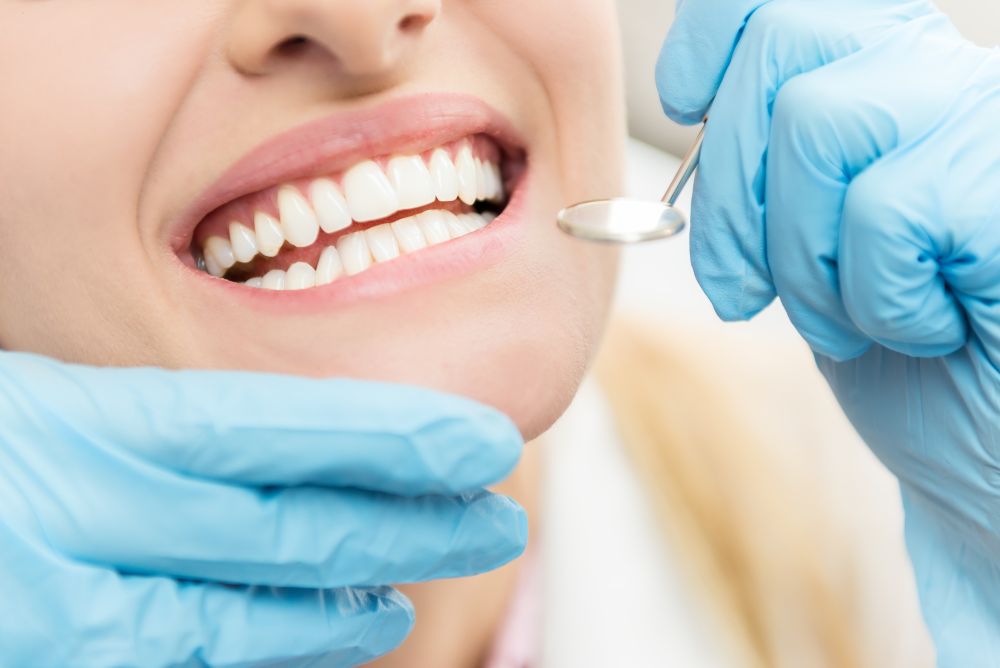How Do I Know If I Have a Cavity?
How to Know if You Have a Cavity
What Is a Cavity?
A cavity is a permanently damaged area on a tooth that eventually forms a hole. Cavities are caused by a build-up of bacteria that create acids which corrode the hard enamel on the exterior of your teeth. Cavities do not get better on their own and require treatment by a professional.

Factors That Contribute to Developing a Cavity
The foods you eat can play a role in causing a cavity. If you are snacking on very sugary foods or drinking an abundance of juices or sodas, you may be more susceptible to cavities. Proper oral hygiene is another contributing factor; if you do not brush and floss your teeth twice daily, you risk acquiring a cavity.
Tooth Cavity Symptoms
It is possible to have no signs or symptoms of a cavity. Typically, this will happen in the beginning stages of a cavity. There are, however, several early signs of a cavity to look out for. When a cavity is left untreated, the symptoms may worsen, and you risk irreversible damage to your tooth and the possibility of needing the tooth extracted.
-
Hot and Cold Sensitivity
Temperature sensitivity is a common symptom when the enamel on your teeth starts to wear. You may be increasingly sensitive to hot or cold food and drinks as the cells and nerves in your teeth are stimulated.
-
Lingering Sensitivity to Sweet Treats
Similar to hot and cold sensitivity, you may also have a lingering sensitivity to sweet foods or drinks. This is also caused by damage to your enamel and can be very uncomfortable.
-
Toothache or Swollen, Painful Gums
Toothaches are the most common symptom of a cavity; this includes general discomfort or jaw pain. Occasionally, cavities can cause pain, swelling or bleeding in your gums. If a cavity irritates your gums, it can lead to gingivitis or periodontitis.
-
Bad Breath or Strange Taste
Cavities can cause bad breath, as the hole from your cavity is a pocket for hiding harmful bacteria. Removing these bacteria when you brush or floss your teeth can be difficult, resulting in lingering bad breath. You may also notice a strange taste in your mouth from the cavity.
-
Tooth Discoloration
Tooth discoloration can occur as your cavity progresses. The stains vary in color; they can be white, brown, or even black. As the cavity worsens, the stain can become darker and more apparent.
-
Holes or Pits in Your Tooth
Holes and pits in your tooth occur when a cavity is left untreated. In some cases, you can see the hole and feel it with your tongue. Other times, the hole may develop between teeth, making it impossible to see. You may have pain or discomfort in the affected area.
-
Pus
If you notice pus around your tooth, your cavity has caused an abscess and it is an emergency that needs to be handled right away. An abscess can be very painful and may cause a fever. If you develop an abscess, your dentist will need to prescribe antibiotics.
When to See a Dentist
If you think you may have a cavity, it’s time to call your dentist. Staying proactive about your oral health is crucial. If you have one of the listed symptoms, handling your cavity early is essential in avoiding more problems. You should see your dentist regularly to maintain your oral hygiene.
Tooth Cavity Treatments
If your cavity is still in the early stages, you can visit your dentist for a fluoride treatment to restore your tooth’s enamel. If the cavity is too serious for that option, you will need a filling or crown. You will require a root canal or tooth extraction in the most severe cases.
How to Prevent a Cavity
We encourage all our patients to take the appropriate measures to prevent harmful cavities from developing. Brushing and flossing regularly is the easiest and most effective method for keeping cavities at bay. Regular dental exams and cleanings are also vital components of preventing cavities.
Contact Dental Park for All Your Dental Needs
Whether you have a cavity or you want to stay on top of your dental hygiene to prevent a cavity, Dental Park’s team of industry-leading professionals is here to help. Contact us today to schedule your appointment!
